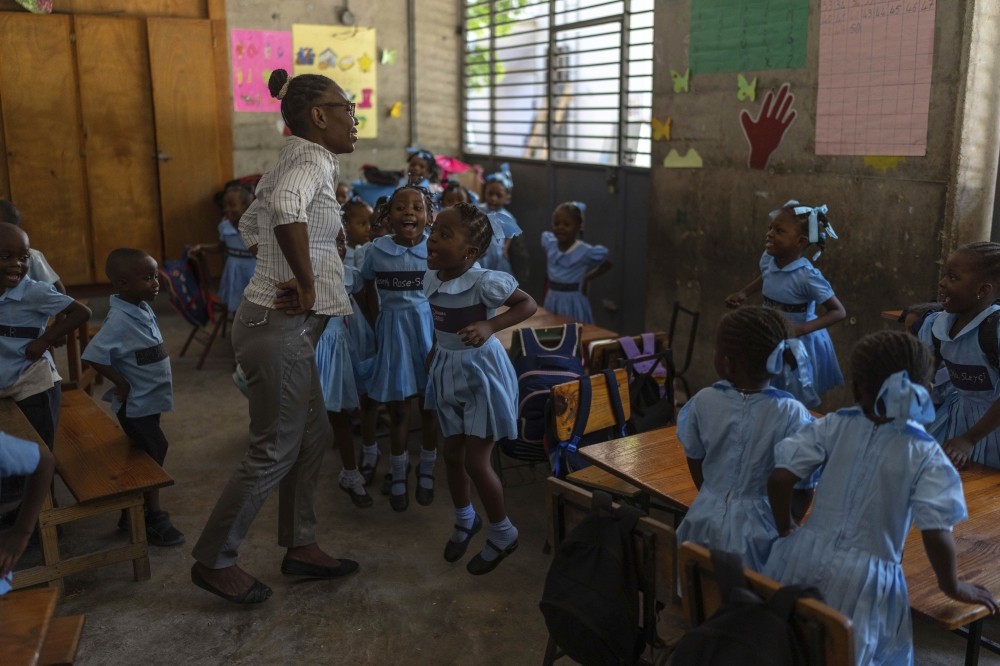15/05/2024
15/05/2024

PORT-AU-PRINCE, Haiti, May 15, (AP): Students often throw up or wet themselves when gunfire erupts outside their school in northern Port-au-Prince.
When they do, school director Roseline Ceragui Louis finds there's only one way to try to calm the children and keep them safe: getting them to lie on the classroom floor while she sings softly.
"You can’t work in that environment," she said. "It’s catastrophic. They’re traumatized.”
Haiti's capital is under the onslaught of powerful gangs that control 80% of of the city.
On Feb. 29, gangs launched coordinated attacks targeting key infrastructure. The attacks have left more than 2,500 people dead or wounded in the first three months of the year. Now, in a bid to help save Haiti’s youngest generation, the country is undergoing a wider push to dispel a long-standing taboo on seeking therapy and talking about mental health.
At a recent training session in a relatively safe section of Port-au-Prince, parents learned games to put a smile on their children’s faces. The parents are often so distraught and discouraged they don’t have energy to care for the kids, said Yasmine Déroche, who trains adults to help children overcome trauma inflicted by persistent gang violence.
Gunmen have burned police stations, stormed Haiti’s two biggest prisons to release more than 4,000 inmates and fired on the country’s main international airport, which closed March 4 and hasn’t reopened. The violence has also paralyzed Haiti’s largest seaport.
Meanwhile, some 900 schools have closed, affecting some 200,000 children.
"We must fight against this social inequality so that all children, all young people, can have the same opportunities to go to school, to work, to earn a living,” said Chrislie Luca, president of the nonprofit Hearts for Change Organization for Deprived Children of Haiti. "All of these are problems that have led us where we are today, with the country on the edge of the abyss.”
UNICEF's Haiti representative said the violence has displaced more than 360,000 people, the majority women and children. In addition, at least one-third of the 10,000 victims of sexual violence last year were children, Bruno Maes said.
"Children are left to fend for themselves, without assistance, without enough protection," he said.
More than 80 children were killed or wounded from January to March, a 55% increase over the last quarter of 2023 and "the most violent period for children in the country on record,” said Save the Children, a U.S. nonprofit.
Luca said among those hurt were two boys struck in the head while walking to school and an 8-year-old girl playing inside her home when she was hit by a bullet that tore through her intestines, requiring emergency surgery.
"We are witnessing a lot of mental health issues,” Maes said. "This violence is traumatizing."
Louis said her 10-year-old son would daily cry "You’re going to die!” as she headed to school, and the violence did not allow the boy to eat, sleep or play.
Louis remained resolute, knowing she had to be strong for him and her students.
"My heart is destroyed, but my students see my smile every day," she said.


